Генри Каттнер - World’s End
Здесь есть возможность читать онлайн «Генри Каттнер - World’s End» весь текст электронной книги совершенно бесплатно (целиком полную версию без сокращений). В некоторых случаях можно слушать аудио, скачать через торрент в формате fb2 и присутствует краткое содержание. Год выпуска: 1938, Жанр: Фантастика и фэнтези, на английском языке. Описание произведения, (предисловие) а так же отзывы посетителей доступны на портале библиотеки ЛибКат.
- Название:World’s End
- Автор:
- Жанр:
- Год:1938
- ISBN:нет данных
- Рейтинг книги:4 / 5. Голосов: 1
-
Избранное:Добавить в избранное
- Отзывы:
-
Ваша оценка:
- 80
- 1
- 2
- 3
- 4
- 5
World’s End: краткое содержание, описание и аннотация
Предлагаем к чтению аннотацию, описание, краткое содержание или предисловие (зависит от того, что написал сам автор книги «World’s End»). Если вы не нашли необходимую информацию о книге — напишите в комментариях, мы постараемся отыскать её.
World’s End — читать онлайн бесплатно полную книгу (весь текст) целиком
Ниже представлен текст книги, разбитый по страницам. Система сохранения места последней прочитанной страницы, позволяет с удобством читать онлайн бесплатно книгу «World’s End», без необходимости каждый раз заново искать на чём Вы остановились. Поставьте закладку, и сможете в любой момент перейти на страницу, на которой закончили чтение.
Интервал:
Закладка:
“That is the Doom,” Nak said, and there was hatred in his voice. “That entity, from intergalactic space, has wiped out all life from earth—all but a few hundreds. What it is we never discovered—not though we experimented with it for thousands of years. It is alive, but it is matter of an entirely different atomic type from matter that we know. It is not crystalline, nor mineral, nor organic at all—yet it is alive. And it eats. It ingests all matter—stone and sand and water, and even air, are all alike to it. Watch.”
On the screen there appeared suddenly a great boulder, on which a tree, rooted in a little cup of soil, grew precariously. Into the picture a finger of blackness crept. It moved forward slowly, engulfing the stone and the tree. They were swallowed in the blackness.
“Earth had nothing that could stop it. It moved outward from the Australian desert—and downward too. Through the centuries it has grown until the solid earth, save for one ‘island,’ consists of nothing but that substance. Like an infection, it has eaten its way through steel and solid rock. It grew very slowly at first. Then faster and faster—perhaps forty thousand years ago man realized that it was a menace. It had covered only eighty square miles then. Its rate of growth increased tremendously, and there was nothing that could stop it.
“It has eaten earth, all but a small island, where the last remnants of humanity are gathered. In a circle about this central doomed city are the Outposts. This is an Outpost—one of a group of towers scattered about the edge of the island, to battle the Doom.”
“You—battle it?” Blake asked.
The other nodded. “Yes. Now that it is too late, we have discovered how to destroy it. Through atomic destruction we disintegrate it—shatter the atoms of which it is composed. But we have so little power. For a hundred years now we have been losing ground. Our fuel is rapidly becoming exhausted. Soon the Doom will sweep onward unchecked, and man will go for ever.
“I have told you this because it is in your power to save mankind,” Nak went on, his voice tense. “For you can move in time, and that——”
A warning throbbing went through the great room. A hidden bell was clanging out a muffled warning. Abruptly Nak swung about, raced to a machine. His slender fingers flickered swiftly over a switchboard.
“Look!” he commanded.
On the oval another picture grew—a great tower, monolithic and huge, set on a plain of empty snow. In the distance a black wall marched. The Doom, sweeping inexorably onward to claim earth for its own.
“The tower—it is the one in which we stand,” Nak said.
From the tower’s summit a pale finger of light reached out. It swept down, bathing the black ramp. Little flaming sparks flashed and glittered. And suddenly the jet wall was gone.
It had vanished, disappeared into thin air. In its place was a deep gorge, from which boiling vapors seethed up.
“It is annihilated,” Nak said quietly. “But it will come again, as it has always come. And eventually the power of the ray will be gone. Then——”
He did not finish. He touched the switchboard, and the picture faded. Again he faced Blake.
“Don’t you understand? I have told you this—shown you the Doom—because you can help us.”
“Help you?” Blake said hoarsely. “God—if I could! But we had no science compared to yours——”
“You can move in time. If we had known the secret of the annihilating ray when the Doom first came to earth—when the meteor first struck in Australia—we could have destroyed the seed before the infection had a chance to spread.”
“And I can take you back in time,” Blake interrupted. “That’s what you mean, isn’t it? I can take you back to the day when the meteor struck, and you can destroy it with your ray! But can I transport the ray——”
Nak brought out a gleaming metal cylinder from his mesh garment. “This projector has sufficient power. The meteor was a small one. You will do it, then?”
“Of course! Get what you need, and we can go—now.”
The dwarf smiled. “I need nothing but this projector,” he said as he came to the platform. Awkwardly he clambered through the railing.
Blake, his finger on the bakelite lever, hesitated. Nak glanced at him inquiringly. “Is something wrong?”
Blake had remembered the plunge into the other dimension, where physical laws were so strangely altered or suspended. He was not sure, now, that he could find his way back to his own time. He explained the problem to Nak.
The dwarf chuckled. “Can you open this platform—show me the machinery?” he asked.
Blake nodded. He lifted a panel in the metal flooring, and Nak peered down. After a moment he nodded, thrust an arm through the gap, and made a hasty adjustment.
“That will do it,” he said. “Simply move the lever. Your machine is remarkably simple in its construction and theory. I cannot understand why we have no record of successful time-travel.”
“Ready?” Blake asked.
The dwarf, clutching the metal cylinder tightly, nodded. Blake moved the lever.
Instantly the dead blackness of the other dimension closed around him. Although he had expected the metamorphosis, he shuddered nevertheless.
“Nak!” he called. “Can you hear me?”
There was no sound. Blake extended a tentative hand, groping in the darkness. But he could not find the dwarf. As he hesitated he felt the bakelite lever move under his hand, snap back into its former position. Light blinded him.
And at that moment a curious darting pain went through Blake’s head. He had an utterly indescribable feeling of change, as though some strange metamorphosis had taken place within him. Then it was gone.
He heard Jepson Norwood’s voice finishing the sentence he had begun when the lever had been moved to fling Blake forward in time. The familiar walls of the laboratory were around him.
“——the laws of nature. They can’t be set aside, Ken. And you can see that the machine doesn’t work—in the past or the future.”
“I can’t understand it,” Blake heard himself saying. “It should work, Jep. But—it doesn’t.”
“I think I understand why you can’t go into the past,” Norwood said. “The past can’t be changed, and you can’t do an impossibility. You can’t go back before you existed—or even back a few years or a few minutes, because if you could, you’d remember seeing yourself spring out of empty air on the Time Machine. And you haven’t any such memory.”
“But the future?” Blake asked. (The strange ache in his head—the odd feeling of something lost—was disappearing.) “Your argument doesn’t apply there.”
Norwood shook his head. “I don’t know. But the universe has its laws, Ken—and they can’t be broken.”
“The law of compensation,” Blake said softly, and then stared at Norwood. “I wonder—could it be possible that I have gone into the future—and can’t remember it, simply because memories were erased when I returned to a time-sector previous to the time when those memories were recorded on my brain? After all, one can’t remember a thing before it’s happened. Why”—his eyes were suddenly bright with interest—“I may have gone into the future, brought back someone with me—or tried to and failed, because he couldn’t exist in a time prior to his birth! I’ve the most curious feeling that I have forgotten something—something vitally important——”
And then Kenneth Blake shrugged and vaulted the rail of the Time Machine.
“Oh, it’s rot, of course, Jep,” he said, clapping Norwood affectionately on the shoulder. “It’s too fantastic for belief. If I had gone into time I’d have remembered it. We’ve failed, that’s all. Our theories were right, but they didn’t work. There may be no such thing as time traveling, after all!”
Интервал:
Закладка:
Похожие книги на «World’s End»
Представляем Вашему вниманию похожие книги на «World’s End» списком для выбора. Мы отобрали схожую по названию и смыслу литературу в надежде предоставить читателям больше вариантов отыскать новые, интересные, ещё непрочитанные произведения.
Обсуждение, отзывы о книге «World’s End» и просто собственные мнения читателей. Оставьте ваши комментарии, напишите, что Вы думаете о произведении, его смысле или главных героях. Укажите что конкретно понравилось, а что нет, и почему Вы так считаете.
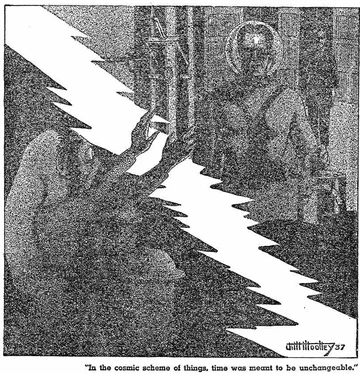
![Генри Каттнер - Очи Тхара [The Eyes of Thar]](/books/28174/genri-kattner-ochi-thara-the-eyes-of-thar-thumb.webp)
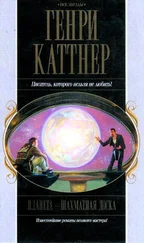

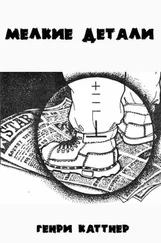

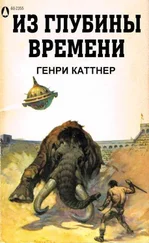


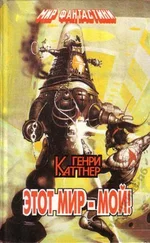
![Генри Каттнер - Сын несущего расходы [= Сын волынщика; Один из несущих расходы]](/books/255796/genri-kattner-syn-nesuchego-rashody-syn-volynchik-thumb.webp)